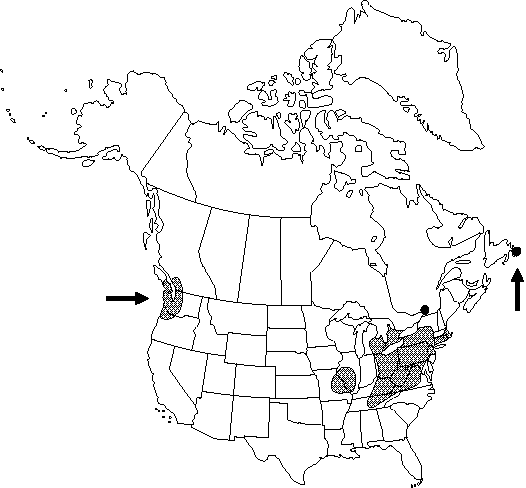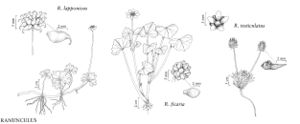Ranunculus ficaria
Sp. Pl. 1: 550. 1753.
Stems erect to decumbent, not rooting nodally, glabrous, not bulbous-based, spheric or ellipsoid bulbils sometimes formed in leaf-axils. Tuberous roots present. Basal leaves simple and undivided, blades cordate to deltate or semicircular, 1.8-3.7 × 2-4 cm, base cordate, margins entire or crenate, apex rounded or obtuse. Flowers: receptacle glabrous; sepals spreading, saccate at extreme base, 4-9 × 3-6 mm, glabrous; petals yellow, 10-15 × 3-7 mm. Heads of achenes hemispheric, 4-5 × 6-8 mm; achenes 2.6-2.8 × 1.8-2 mm, pubescent; beak absent.
Phenology: Flowering spring (Apr–May).
Habitat: Shaded stream banks and moist disturbed areas
Elevation: 0-300 m
Distribution

Introduced; B.C., Nfld. and Labr. (Nfld.), Ont., Que., Conn., D.C., Ill., Ky., Md., Mass., Mich., Mo., N.J., N.Y., Ohio, Oreg., Pa., R.I., Tenn., Va., Wash., W.Va., native to Europe
Discussion
In North America, Ranunculus ficaria seems to be expanding its range rapidly in areas with cool mesic climates.
The species is extremely variable (especially in leaf size and stem posture), and many attempts have been made to divide it into varieties or subspecies (see P. D. Sell 1994). The different forms, however, intergrade extensively and the varieties are often impossible to distinguish.
Selected References
None.
